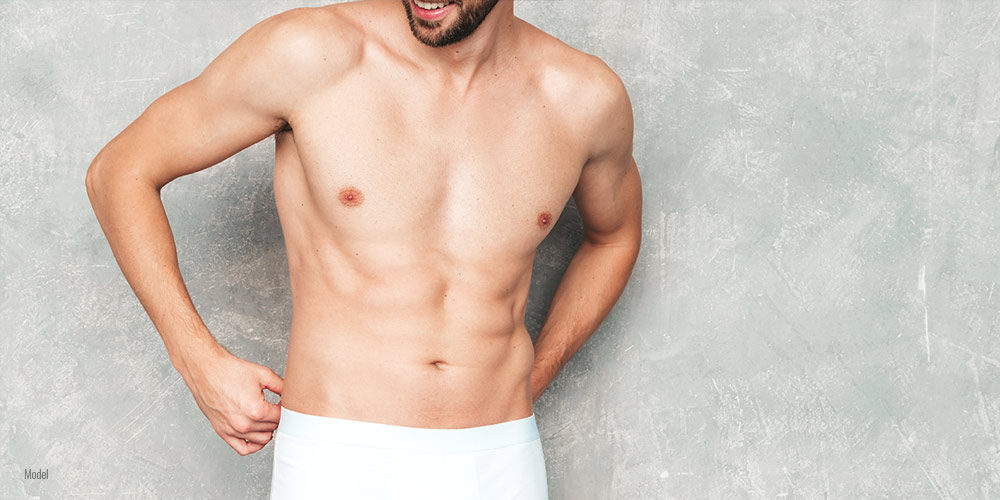
Even though gynecomastia (or enlarged male breasts) is a medical condition that affects a large percentage of men, it is still a sensitive topic to address. While gynecomastia is common among males of all ages, many men may avoid seeking treatment because they’re embarrassed or think that it may go away on its own. However, if you’ve developed “man boobs,” it doesn’t necessarily mean that you have gynecomastia. In this blog, we’ll go over the signs and symptoms of gynecomastia, and what you can do to treat the issue.
3 Min Read:
What Are the Symptoms of Gynecomastia?
- Breast Growth: One of the first and often most noticeable signs of gynecomastia is enlargement in your breasts.
- Hard Lumps: Gynecomastia sometimes presents with a small, button-like lump right under your nipple.
- Breast Tenderness: Mild to severe discomfort in your breasts, ranging from tenderness to pain.
- Swelling: You may notice swelling or puffiness in both your breasts and nipples.
- Nipple Sensitivity: Your nipples may feel sore, itchy, or more sensitive than usual.
- Asymmetry: Gynecomastia may cause uneven growth in your breasts, making one appear larger than the other.
What Causes Gynecomastia?
While gynecomastia can be caused by several factors, the primary culprit is a hormonal imbalance. When the estrogen in your body is elevated, it causes an increase in the development of glandular breast tissue. Some of the reasons behind a hormonal imbalance include:
- Hormone Fluctuations: Gynecomastia can develop at any time; however, it is most prevalent during periods of age-related hormone changes. In fact, 65% of adolescent boys develop gynecomastia, and nearly 70% of men 50 and older.
- Medication: Several medications can contribute to the hormonal changes that cause gynecomastia, including treatment for anti-anxiety, antidepressants, heart and ulcer issues, and certain herbal supplements.
- Recreational Drugs: The use of performance-enhancing drugs (like anabolic steroids), marijuana, heroin, and amphetamines can contribute to gynecomastia.
- Medical Conditions: Health concerns like overactive thyroid, kidney and liver failure, and certain types of cancer may increase your likelihood of developing gynecomastia.
Do I Have Gynecomastia or Pseudogynecomastia?
Enlargement of the male breasts doesn’t always mean that you have gynecomastia. If you are overweight or obese, the increase in breast size may be due to an accumulation of excess fat, known as pseudogynecomastia. Unlike true gynecomastia, which is due to the growth of glandular breast tissue, pseudogynecomastia is simply an increase in fat. It can be treated with liposuction, but can also be reversed by losing weight.
Differences between gynecomastia symptoms and pseudogynecomastia symptoms include:
- Breasts are soft to the touch, without any noticeable lumps
- There is no tenderness, pain, or discomfort in the breasts
- Both breasts increase in size, as fat is usually distributed symmetrically
The best way to determine if you have true gynecomastia is to meet with a board-certified plastic surgeon who is experienced in male breast reduction surgery. They will examine you, review your medical history and medications, and offer treatment options to restore a more masculine chest contour.
Explore Your Gynecomastia Surgery Options in Philadelphia and New Jersey
Don’t let gynecomastia keep you from enjoying activities with friends and family. Take the first step towards restoring your confidence in your appearance by scheduling a consultation with Dr. Adrian Lo. Dr. Lo is not only highly skilled in gynecomastia surgery but also puts every patient at ease, ensuring they receive the results they desire from a compassionate physician. To schedule an appointment to determine if you are a good candidate for gynecomastia surgery, call us today at (215) 829-6900 or complete the online contact form.
